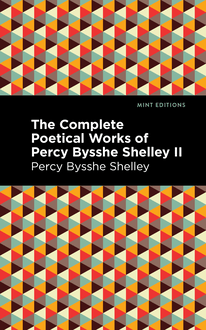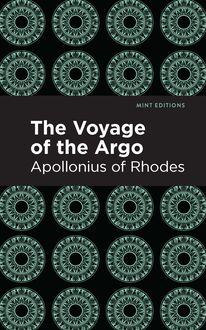-
 Univers
Univers
-
 Ebooks
Ebooks
-
 Livres audio
Livres audio
-
 Presse
Presse
-
 Podcasts
Podcasts
-
 BD
BD
-
 Documents
Documents
-
- Cours
- Révisions
- Ressources pédagogiques
- Sciences de l’éducation
- Manuels scolaires
- Langues
- Travaux de classe
- Annales de BEP
- Etudes supérieures
- Maternelle et primaire
- Fiches de lecture
- Orientation scolaire
- Méthodologie
- Corrigés de devoir
- Annales d’examens et concours
- Annales du bac
- Annales du brevet
- Rapports de stage
La lecture à portée de main
Vous pourrez modifier la taille du texte de cet ouvrage
Découvre YouScribe en t'inscrivant gratuitement
Je m'inscrisDécouvre YouScribe en t'inscrivant gratuitement
Je m'inscrisEn savoir plus
Vous pourrez modifier la taille du texte de cet ouvrage
En savoir plus

Description
“The first taste I had for books came to me from my pleasure in the fables of the Metamorphoses of Ovid. For at about seven or eight years of age I would steal away from any other pleasure to read them, inasmuch as this language was my mother tongue, and it was the easiest book I knew and the best suited by its content to my tender age.” –Michel de Montaigne
The Metamorphoses of Ovid (8 AD) is an epic poem by Ovid. Published the same year the poet was sent into exile for the rest of his life, the Metamorphoses are the crowning achievement of the first major poet of the Roman empire. Written in dactylic hexameter, the meter of Homer’s Iliad and Odyssey and of Virgil’s Aeneid, Ovid’s work is an epic poem of transformations, of shape-shifting matter and beings bound to the power of love. Taking as its scope the whole history of the universe from the arrangement of order from chaos to the death of Julius Caesar, the Metamorphoses pays heed to desire’s ability to enact long-lasting and at times irreversible change.
The story begins at the very beginning, with the creation of the cosmos out of nothing, of order out of unimaginable chaos. Gods and goddesses have their moment in the sun, mankind is born only to be wiped out by an immense flood, then to rise again. Amidst countless little-known descriptions of war, romance, and change are the timeless tales of Perseus, Jason and Medea, Theseus and the Minotaur, and the labors of Hercules. Icarus soars too close to the sun. Orpheus tragically condemns Eurydice to the underworld. Troy is built and destroyed, the immortal Achilles is killed, and Aeneas sets sail to save his life and lay the foundations for Rome itself. Throughout these interwoven stories of individual and epochal change, Ovid explores the inescapability of love and death, essential themes both shared by all and constitutive of everything that was or ever will be. The Metamorphoses of Ovid is an intricate masterpiece of world literature that stands the test of time just as much as it defines it.
With a beautifully designed cover and professionally typeset manuscript, this edition of The Metamorphoses of Ovid is a classic work of Roman literature reimagined for modern readers.
Sujets
Informations
| Publié par | Mint Editions |
| Date de parution | 20 avril 2021 |
| Nombre de lectures | 0 |
| EAN13 | 9781513285238 |
| Langue | English |
| Poids de l'ouvrage | 4 Mo |
Informations légales : prix de location à la page 0,0750€. Cette information est donnée uniquement à titre indicatif conformément à la législation en vigueur.
Extrait
The Metamorphoses of Ovid
Ovid
The Metamorphoses of Ovid was first published in 8 AD .
This edition published by Mint Editions 2021.
ISBN 9781513280219 | E-ISBN 9781513285238
Published by Mint Editions®
minteditionbooks.com
Publishing Director: Jennifer Newens
Design & Production: Rachel Lopez Metzger
Project Manager: Micaela Clark
Translated by H ENRY T. R ILEY , M.A.
Typesetting: Westchester Publishing Services
C ONTENTS B OOK I B OOK II B OOK III B OOK IV B OOK V B OOK VI B OOK VII B OOK T HE F IRST B OOK T HE S ECOND B OOK T HE T HIRD B OOK T HE F OURTH B OOK T HE F IFTH B OOK T HE S IXTH B OOK T HE S EVENTH B OOK VIII B OOK IX B OOK X B OOK XI B OOK XII B OOK XIII B OOK XIV B OOK XV B OOK T HE E IGHTH B OOK T HE N INTH B OOK T HE T ENTH B OOK T HE E LEVENTH B OOK T HE T WELFTH B OOK T HE T HIRTEENTH B OOK T HE F OURTEENTH B OOK T HE F IFTEENTH N OTES
Book I
Chaos is divided by the Deity into four Elements: to these their respective inhabitants are assigned, and man is created from earth and water. The four Ages follow, and in the last of these the Giants aspire to the sovereignty of the heavens; being slain by Jupiter, a new race of men springs up from their blood. These becoming noted for their impiety, Jupiter not only transforms Lycaon into a wolf, but destroys the whole race of men and animals by a Deluge, with the exception of Deucalion and Pyrrha, who, when the waters have abated, renew the human race, by throwing stones behind them. Other animated beings are produced by heat and moisture: and, among them, the serpent Python. Ph œ bus slays him, and institutes the Pythian games as a memorial of the event, in which the conquerors are crowned with beech; for as yet the laurel does not exist, into which Daphne is changed soon after, while flying from Ph œ bus. On this taking place, the other rivers repair to her father Peneus, either to congratulate or to console him; but Inachus is not there, as he is grieving for his daughter Io, whom Jupiter, having first ravished her, has changed into a cow. She is entrusted by Juno to the care of Argus; Mercury having first related to him the transformation of the Nymph Syrinx into reeds, slays him, on which his eyes are placed by Juno in the tail of the peacock. Io, having recovered human shape, becomes the mother of Epaphus.
Book II
Epaphus, having accused Pha ë ton of falsely asserting that Ph œ bus is his father, Pha ë ton requests Ph œ bus, as a proof of his affection towards his child, to allow him the guidance of the chariot of the Sun for one day. This being granted, the whole earth is set on fire by him, and the Æ thiopians are turned black by the heat. Jupiter strikes Pha ë ton with a thunderbolt, and while his sisters and his kinsman Cyenus are lamenting him, the former are changed into trees, and Cyenus into a swan. On visiting the earth, that he may repair the damage caused by the conflagration, Jupiter sees Calisto, and, assuming the form of Diana, he debauches her. Juno, being enraged, changes Calisto into a bear; and her own son Arcas being about to pierce her with an arrow, Jupiter places them both among the Constellations. Juno having complained of this to Oceanus, is borne back to the heavens by her peacocks, who have so lately changed their colour; a thing which has also happened to the raven, which has been lately changed from white to black, he having refused to listen to the warnings of the crow (who relates the story of its own transformation, and of that of Nyctimene into an owl), and having persisted in informing Ph œ bus of the intrigues of Coronis. Her son Æ sculapius being cut out of the womb of Coronis and carried to the cave of Chiron the Centaur, Ocyrrho ë , the daughter of Chiron, is changed into a mare, while she is prophesying. Her father in vain invokes the assistance of Apollo, for he, in the guise of a shepherd, is tending his oxen in the country of Elis. He neglecting his herd, Mercury takes the opportunity of stealing it; after which he changes Battus into a touchstone, for betraying him. Flying thence, Mercury beholds Herse, the daughter of Cecrops, and debauches her. Her sister Aglauros, being envious of her, is changed into a rock. Mercury returns to heaven, on which Jupiter orders him to drive the herds of Agenor towards the shore; and then, assuming the form of a bull, he carries Europa over the sea to the isle of Crete.
Book III
Agenor commands his son Cadmus to seek his sister Europa. While he is doing this, he slays a dragon in B œ otia; and having sowed its teeth in the earth, men are produced, with whose assistance he builds the walls of Thebes. His first cause of grief is the fate of his grandson Act æ on, who, being changed into a stag, is torn to pieces by his own hounds. This, however, gives pleasure to Juno, who hates not only Semele, the daughter of Cadmus, and the favourite of Jupiter, but all the house of Agenor as well. Assuming the form of Bero ë , she contrives the destruction of Semele by the lightnings of Jupiter; while Bacchus, being saved alive from his mother’s womb, is brought up on the earth. Jupiter has a discussion with Juno on the relative pleasures of the sexes, and they agree to refer the question to Tiresias, who has been of both sexes. He gives his decision in favour of Jupiter, on which Juno deprives him of sight; and, by way of recompense, Jupiter bestows on him the gift of prophesy. His first prediction is fulfilled in the case of Narcissus, who, despising the advances of all females (in whose number is Echo, who has been transformed into a sound), at last pines away with love for himself, and is changed into a flower which bears his name. Pentheus, however, derides the prophet; who predicts his fate, and his predictions are soon verified; for, on the celebration of the orgies, Bacchus having assumed a disguise, is brought before him; and having related to Pentheus the story of the transformation of the Etrurian sailors into dolphins, he is thrown into prison. On this, Pentheus is torn in pieces by the Bacchanals, and great respect is afterwards paid to the rites of Bacchus.
Book IV
Still Alcitho ë and her sisters, neglecting the rites, attend to their spinning, during the festivities, and pass the time in telling stories; and, among others, that of Pyramus and Thisbe, by whose blood the mulberry is turned from white to black, and that of the discovery of the intrigues of Mars and Venus, on the information of the Sun. They also tell how the Sun assumed the form of Eurynome, that he might enjoy her daughter Leucotho ë ; how Clytie, becoming jealous of her sister, was transformed into a sun-flower; and how Salmacis and Hermaphroditus had become united into one body. After this, through the agency of Bacchus, the sisters are transformed into bats, and their webs are changed into vines. Ino rejoicing at this, Juno, in her hatred and indignation, sends one of the Furies to her, who causes her to be struck with insanity, on which she leaps into the sea, with her son Melicerta in her arms; but by the intercession of Venus, they become sea Deities, and their Sidonian attendants, who are bewailing them as dead, are changed into rocks. Cadmus, afflicted at this fresh calamity, retires from Thebes, and flies to Illyria, together with his wife, where they are both transformed into serpents. Of those who despise Bacchus, Acrisius alone remains, the grandfather of Perseus, who, having cut off the head of the Gorgon Medusa, serpents are produced by her blood. Perseus turns Atlas into a mountain, and having liberated Andromeda, he changes sea-weed into coral, and afterwards marries her.
Book V
A tumult arising during the celebration of the nuptials, Phineus claims Andromeda, who has been betrothed to him; and together with Pr œ tus, he and Polydectes are turned into stone. Pallas, who has aided Perseus, now leaves him, and goes to Helicon, to see the fountain of Hippocrene. The Muses tell her the story of Pyreneus and the Pierides, who were transformed into magpies after they had repeated various songs on the subjects of the transformation of the Deities into various forms of animals; the rape of Proserpine, the wanderings of Ceres, the change of Cyane into a fountain, of a boy into a lizard, of Ascalaphus into an owl, of the Sirens into birds in part, of Arethusa into a spring, of Lyncus into a lynx, and of the invention of agriculture by Triptolemus.
Book VI
Influenced by the example of the Muses, Pallas determines on the destruction of Arachne. She enters with her into a contest for the superiority in the art of weaving. Each represents various transformations on her web, and then Arachne is changed into a spider. Niobe, however, is not deterred thereby from preferring her own lot to that of Latona; on account of which, all her children are slain by Apollo and Diana, and she is changed into a rock. On learning this, while one person relates the transformation by Latona of the Lycian rustics into frogs, another calls to mind how Marsyas was flayed by Apollo. Niobe is lamented by Pelops, whose shoulder is of ivory. To console the Thebans in their afflictions, ambassadors come from the adjacent cities. The Athenians alone are absent, as they are attacked by hordes of barbarians, who are routed by Tereus, who marries Progne, the daughter of Pandion. Tereus coming a second time to Athens, takes back with him to his kingdom Philomela, his wife’s sister; and having committed violence on her, with other enormities, he is transformed into a hoopoe, while Philomela is changed into a nightingale, and Progne becomes a swallow. Pandion, hearing of these wondrous events dies of grief. Erectheus succeeds him, whose daughter, Orithyia, is ravished by Boreas, and by him is the mother of Calais and Zethes, who are of the number of the Argonauts on the following occasion.
Book VII
Jason, by the aid of Medea, having conquered the bulls that breathe forth
-
 Univers
Univers
-
 Ebooks
Ebooks
-
 Livres audio
Livres audio
-
 Presse
Presse
-
 Podcasts
Podcasts
-
 BD
BD
-
 Documents
Documents
-
Jeunesse
-
Littérature
-
Ressources professionnelles
-
Santé et bien-être
-
Savoirs
-
Education
-
Loisirs et hobbies
-
Art, musique et cinéma
-
Actualité et débat de société
-
Jeunesse
-
Littérature
-
Ressources professionnelles
-
Santé et bien-être
-
Savoirs
-
Education
-
Loisirs et hobbies
-
Art, musique et cinéma
-
Actualité et débat de société
-
Actualités
-
Lifestyle
-
Presse jeunesse
-
Presse professionnelle
-
Pratique
-
Presse sportive
-
Presse internationale
-
Culture & Médias
-
Action et Aventures
-
Science-fiction et Fantasy
-
Société
-
Jeunesse
-
Littérature
-
Ressources professionnelles
-
Santé et bien-être
-
Savoirs
-
Education
-
Loisirs et hobbies
-
Art, musique et cinéma
-
Actualité et débat de société
- Cours
- Révisions
- Ressources pédagogiques
- Sciences de l’éducation
- Manuels scolaires
- Langues
- Travaux de classe
- Annales de BEP
- Etudes supérieures
- Maternelle et primaire
- Fiches de lecture
- Orientation scolaire
- Méthodologie
- Corrigés de devoir
- Annales d’examens et concours
- Annales du bac
- Annales du brevet
- Rapports de stage



















